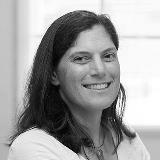About
Victoria J. Orphan is a geobiologist who studies the interactions between marine microorganisms and their environment.
Her research team uses molecular, microscopic and geochemical techniques to study the interactions between microorganisms in the environment.
Orphan is particularly interested in understanding how archaea and bacteria build and maintain their cells in extreme environments like the deep ocean, the deep subsurface, methane seeps and vent ecosystems.
Through the development of new techniques like nanoscale secondary ion mass spectrometry, or nanoSIMS, she is uncovering how archaea and bacteria use and cycle methane, sulphur and nitrogen. She has discovered deep sea microorganisms that live for decades and tracked where the carbon and nitrogen from viruses goes.
Awards
- Nomis Distinguished Scientist
- MacArthur Fellow
- American Academy of Microbiology Fellow
- Presidential Early Career Award in Science and Engineering (PECASE)
- Department of Energy Early Career Award
Relevant Publications
McGlynn, S.E., Chadwick, G.L., O’Neill, A., Mackey, M., Thor, A., Deerinck, T.J., Ellisman, M.H. and V.J. Orphan. 2018. Subgroup characteristics of marine methane-oxidizing ANME-2 archaea and their syntrophic partners revealed by integrated multimodal analytical microscopy. Applied and environmental microbiology, pp.AEM-00399.
Pasulka, A.L., Thamatrakoln, K., Kopf, S.H., Guan, Y., Poulos, B., Moradian, A., Sweredoski, M.J., Hess, S., Sullivan, M.B., Bidle, K.D. and Orphan, V.J., 2017. Interrogating marine virus-host interactions and elemental transfer with BONCAT and nanoSIMS-based methods. Environmental Microbiology. 20(2), pp.671-692.
Trembath-Reichert, E., Y. Morono, A. Ijiri, T. Hoshino, K.S Dawson, F. Inagaki and V. J. Orphan (2017). Methyl compound use and slow growth characterize life in 2-km-deep subseafloor coal beds. Proceedings of the National Academy of Sciences. 114(44), pp.E9206-E9215
Marlow, JJ., J. A. Steele, W. Ziebis, A. R. Thurber, L.A. Levin, V.J. Orphan (2014). Carbonate-hosted methanotrophy represents and unrecognized methane sink in the deep sea. Nat. Comm. DOI: 10.1038/ncomms6094
McGlynn, S, G. Chadwick, C. Kempes, & V.J. Orphan (2015) Single cell activity reveals direct electron transfer in methanotrophic consortia. Nature. 526:531-535.
Support Us
CIFAR is a registered charitable organization supported by the governments of Canada and Quebec, as well as foundations, individuals, corporations and Canadian and international partner organizations.
